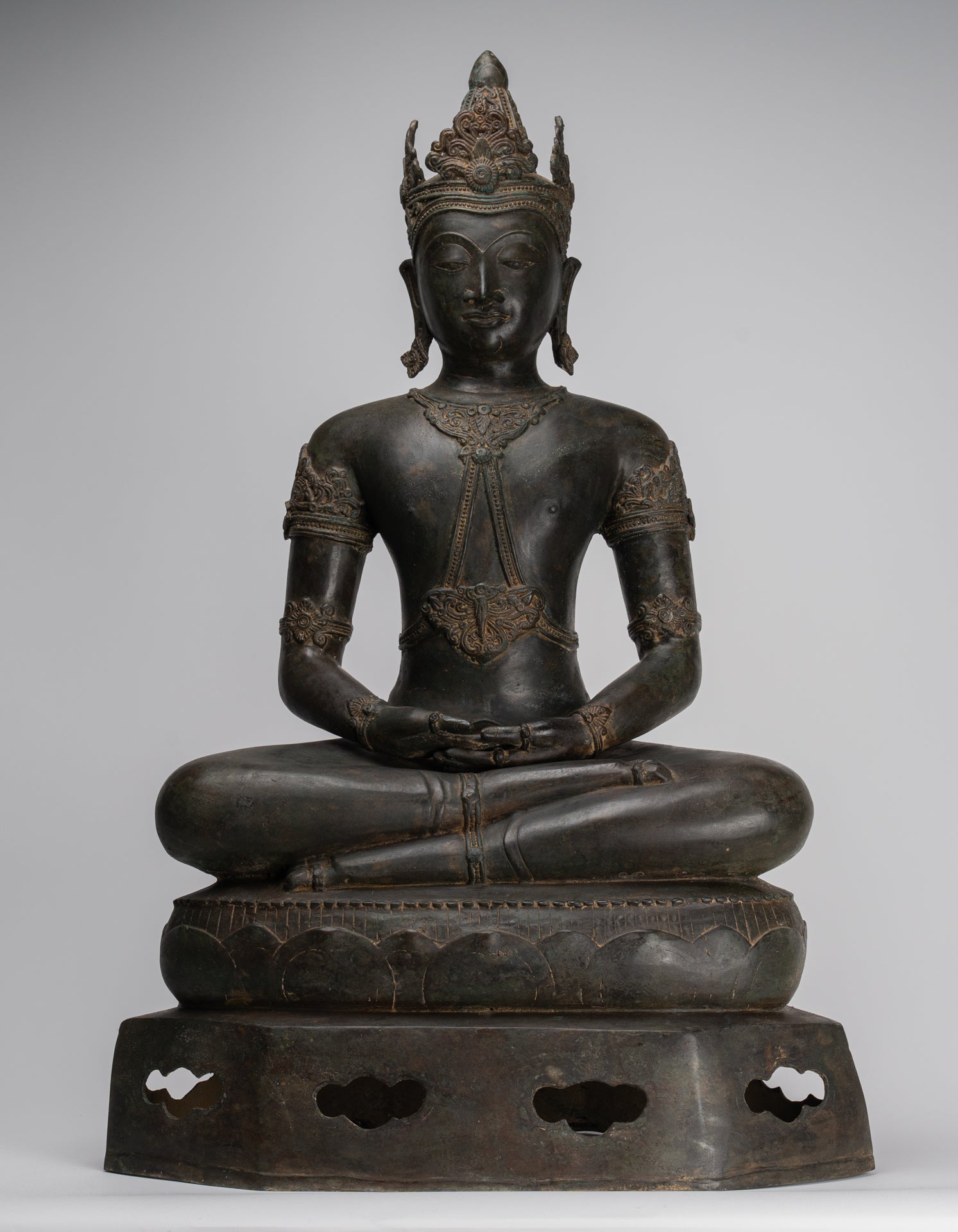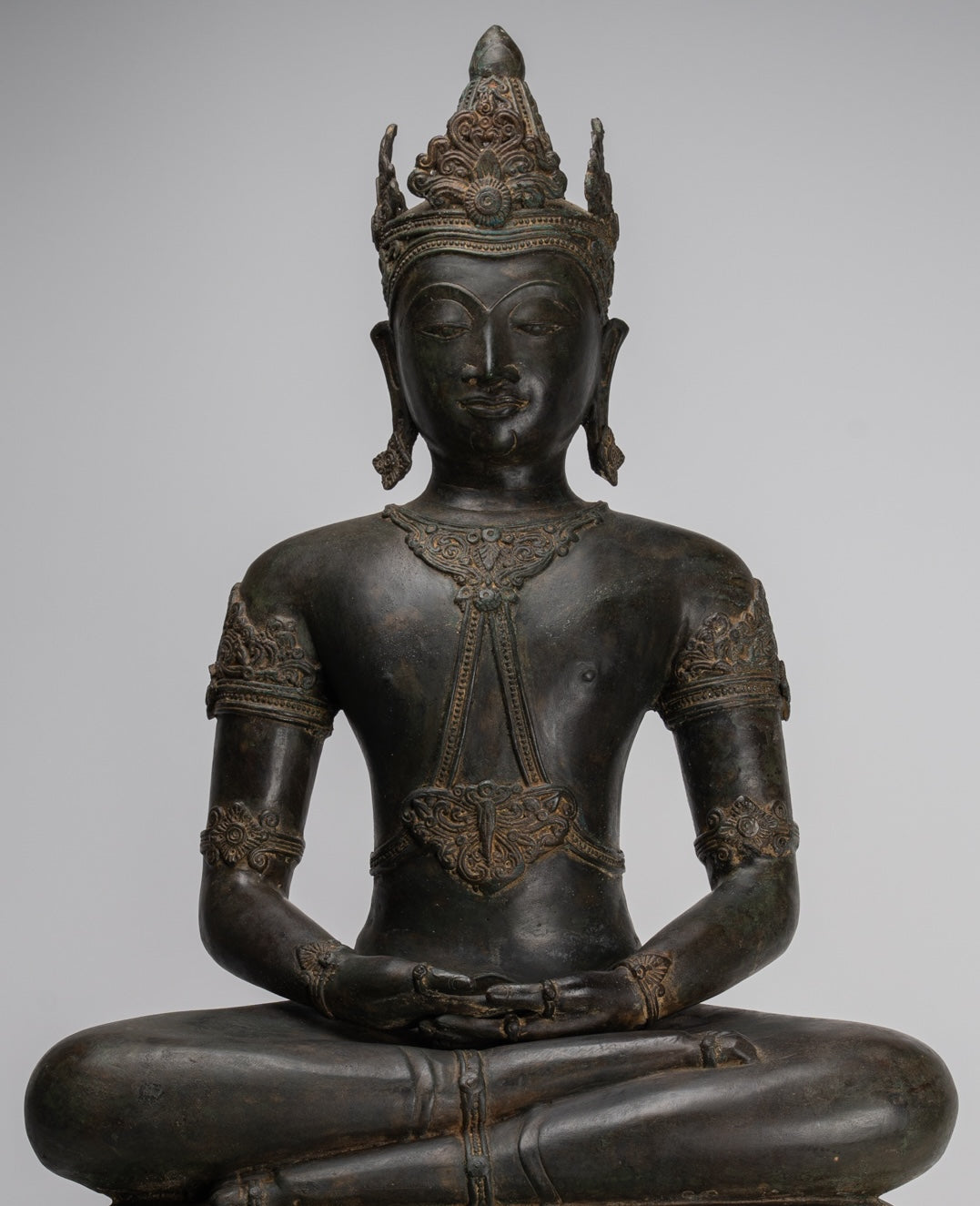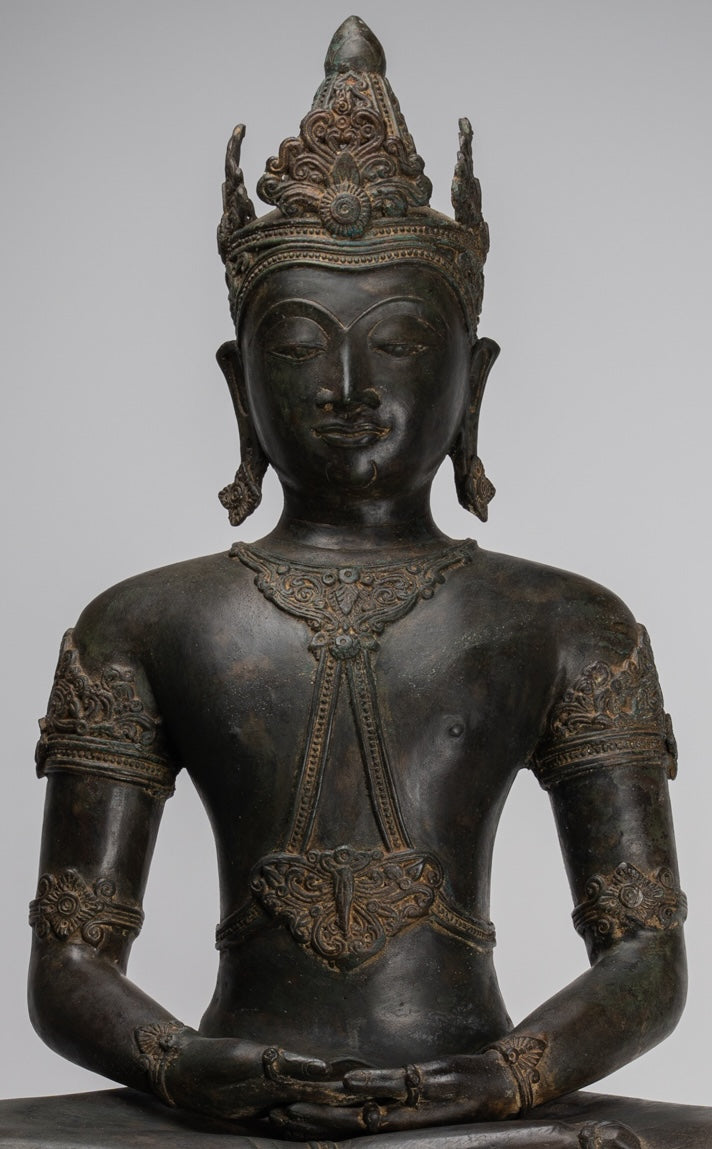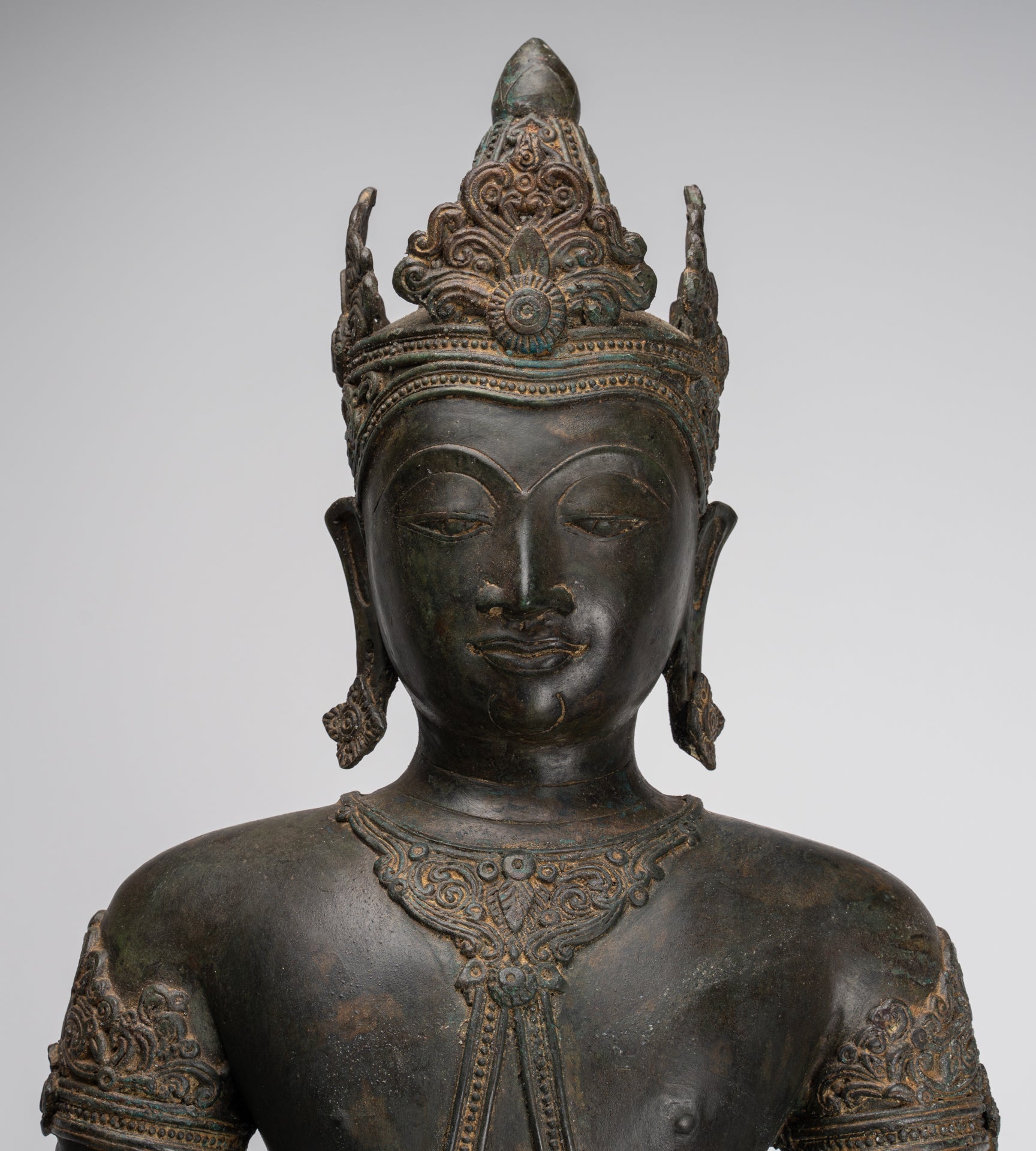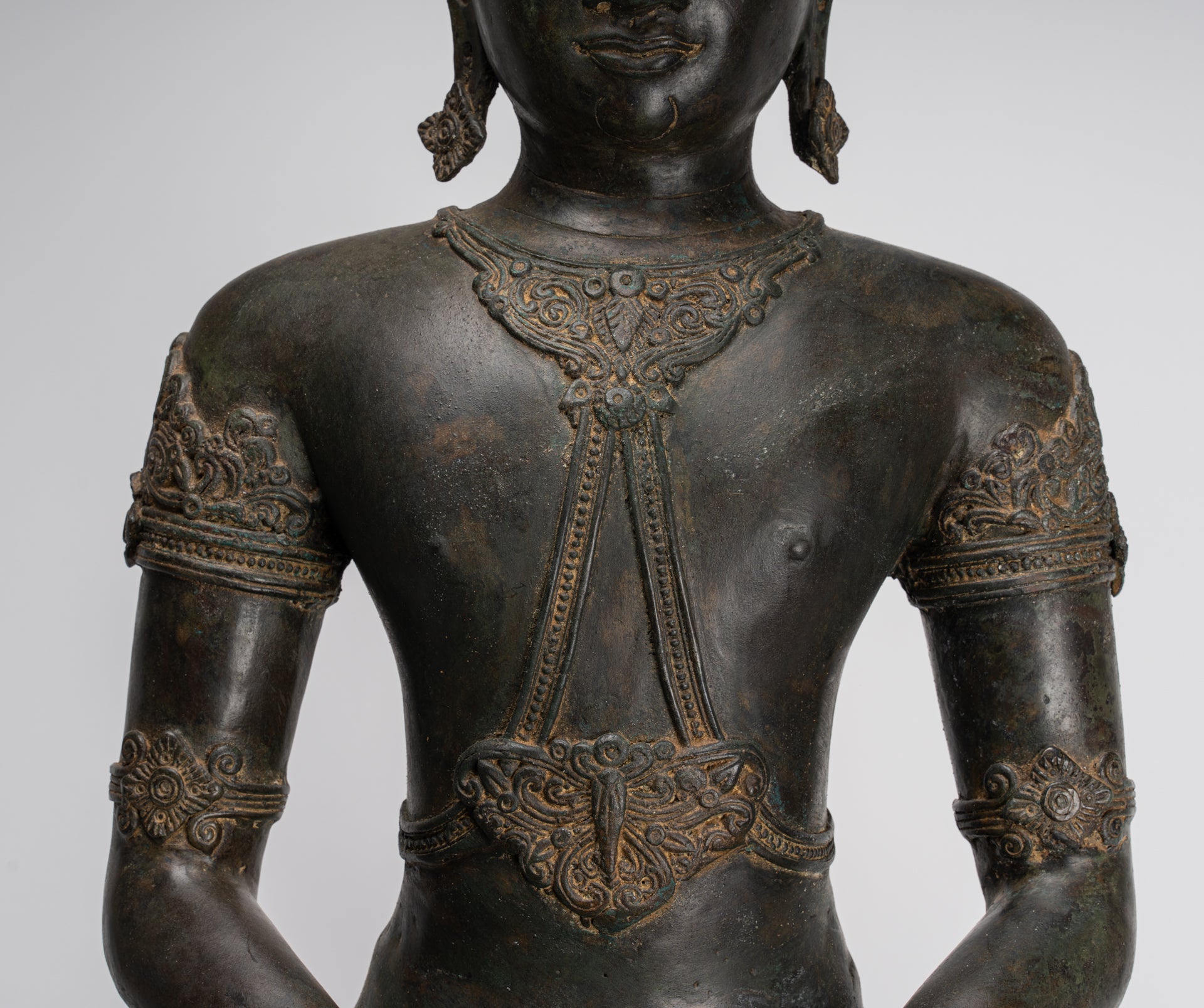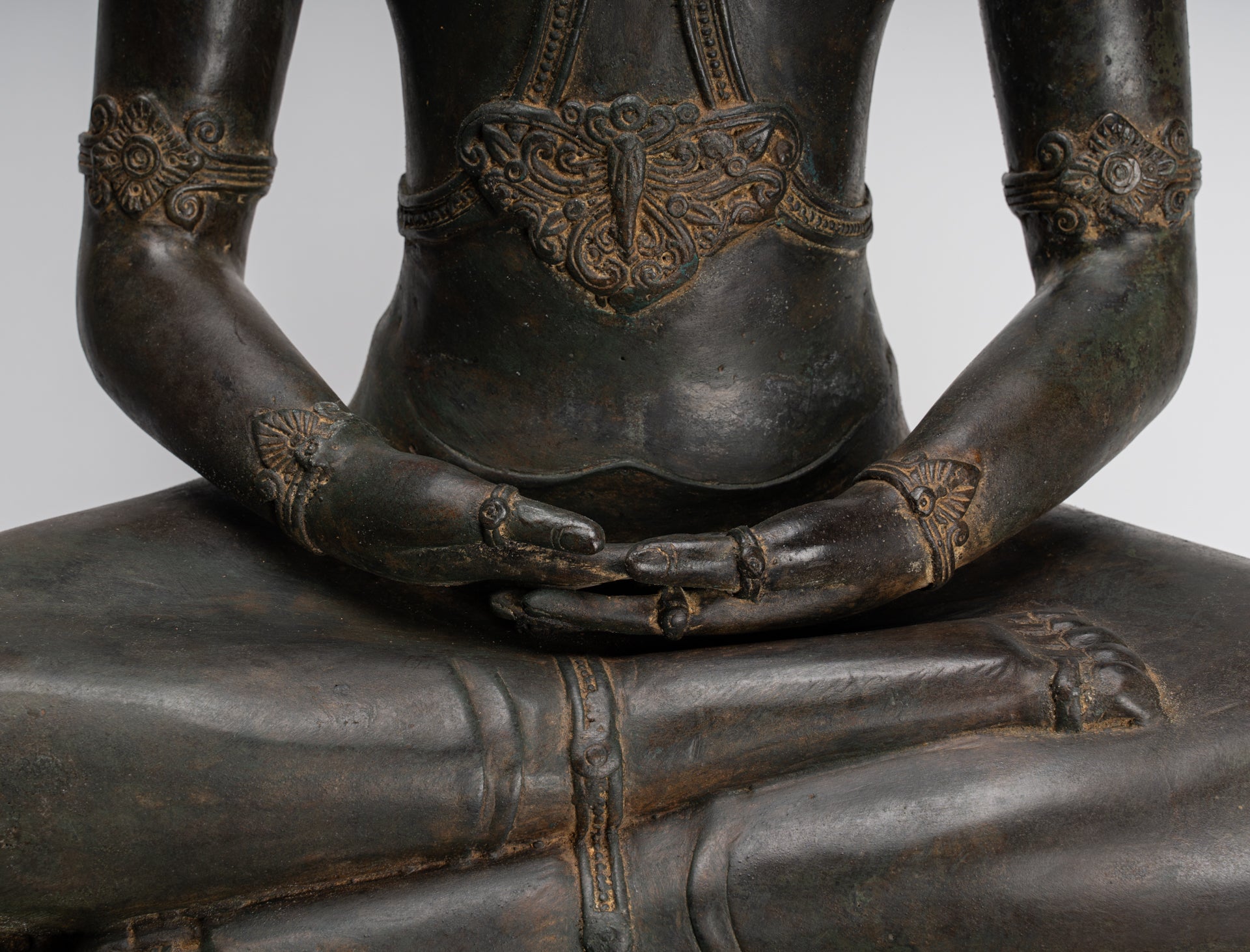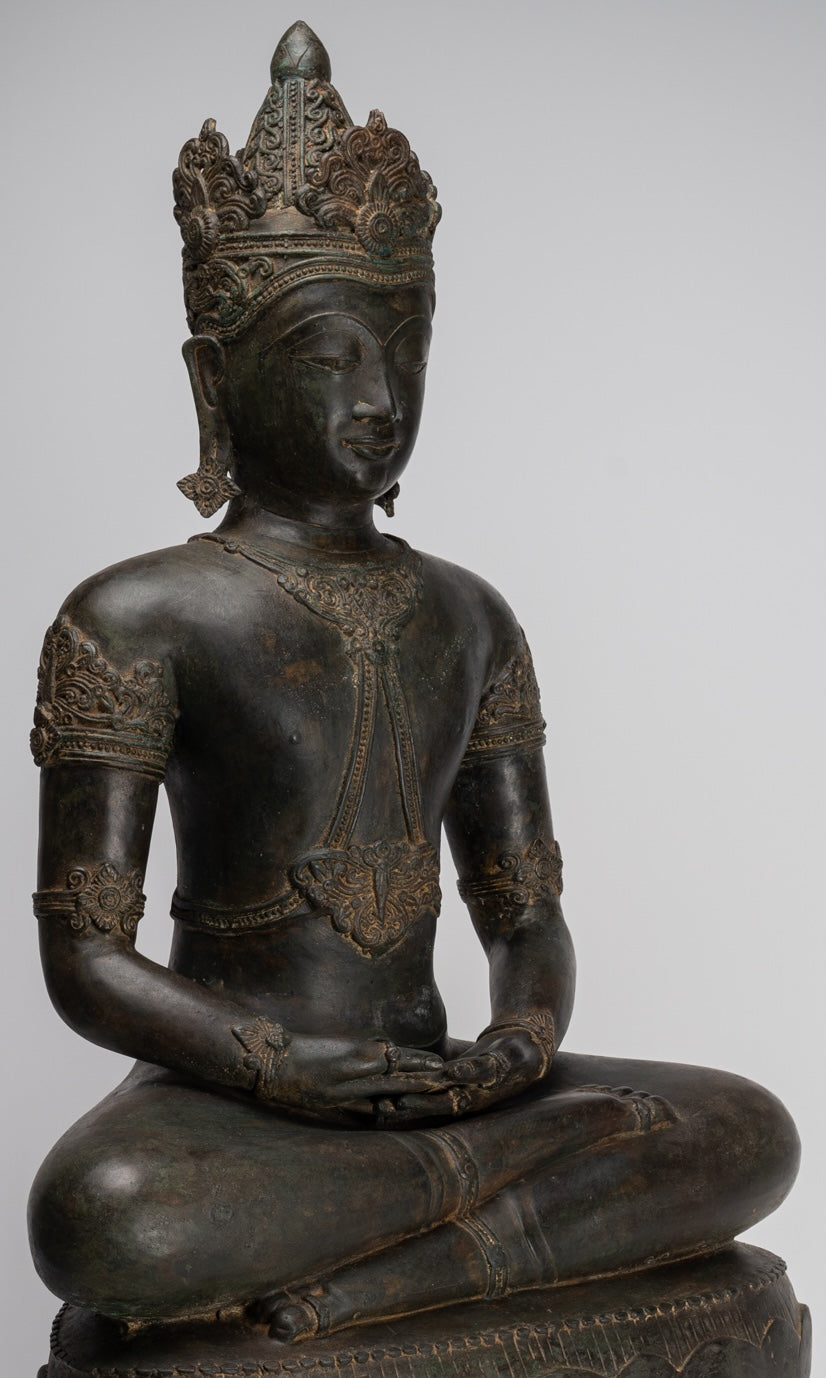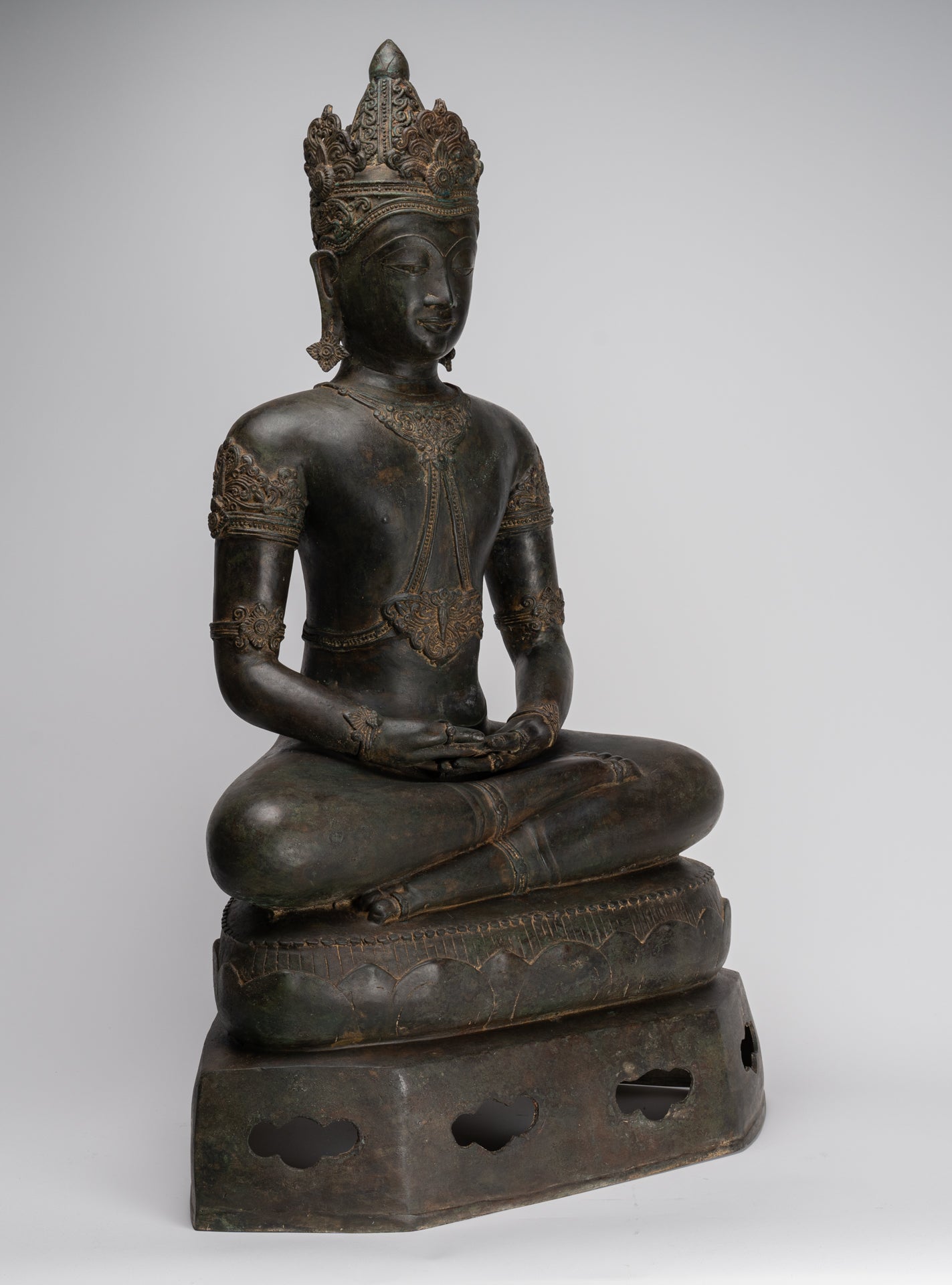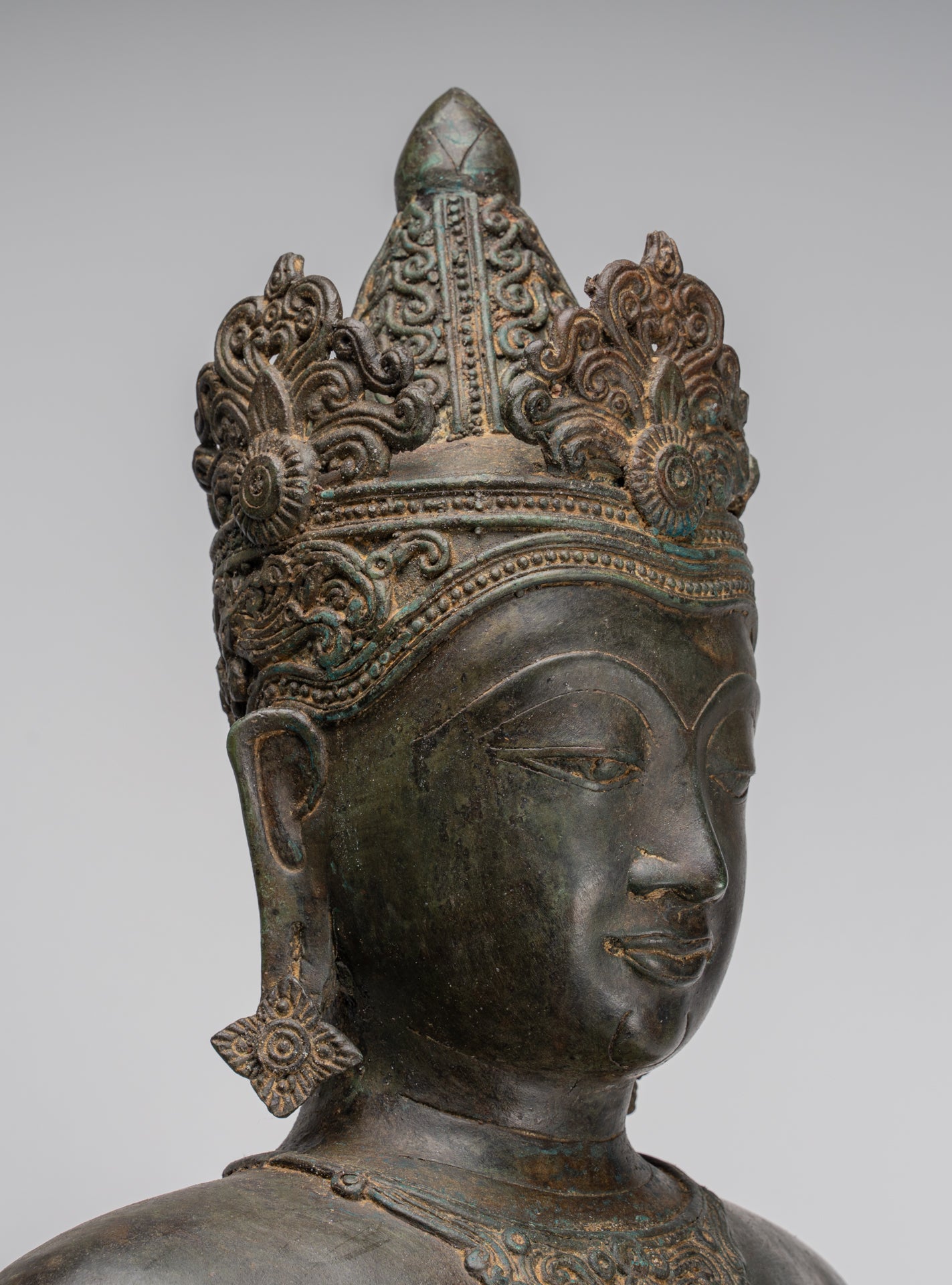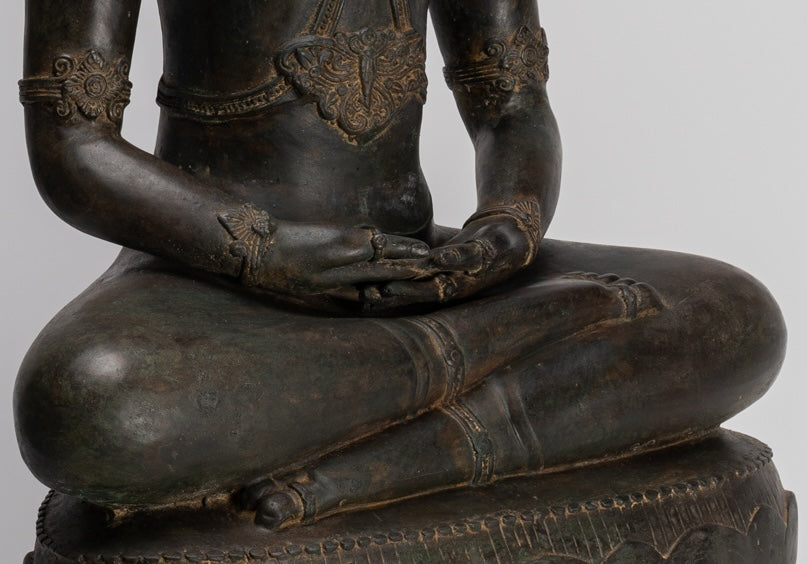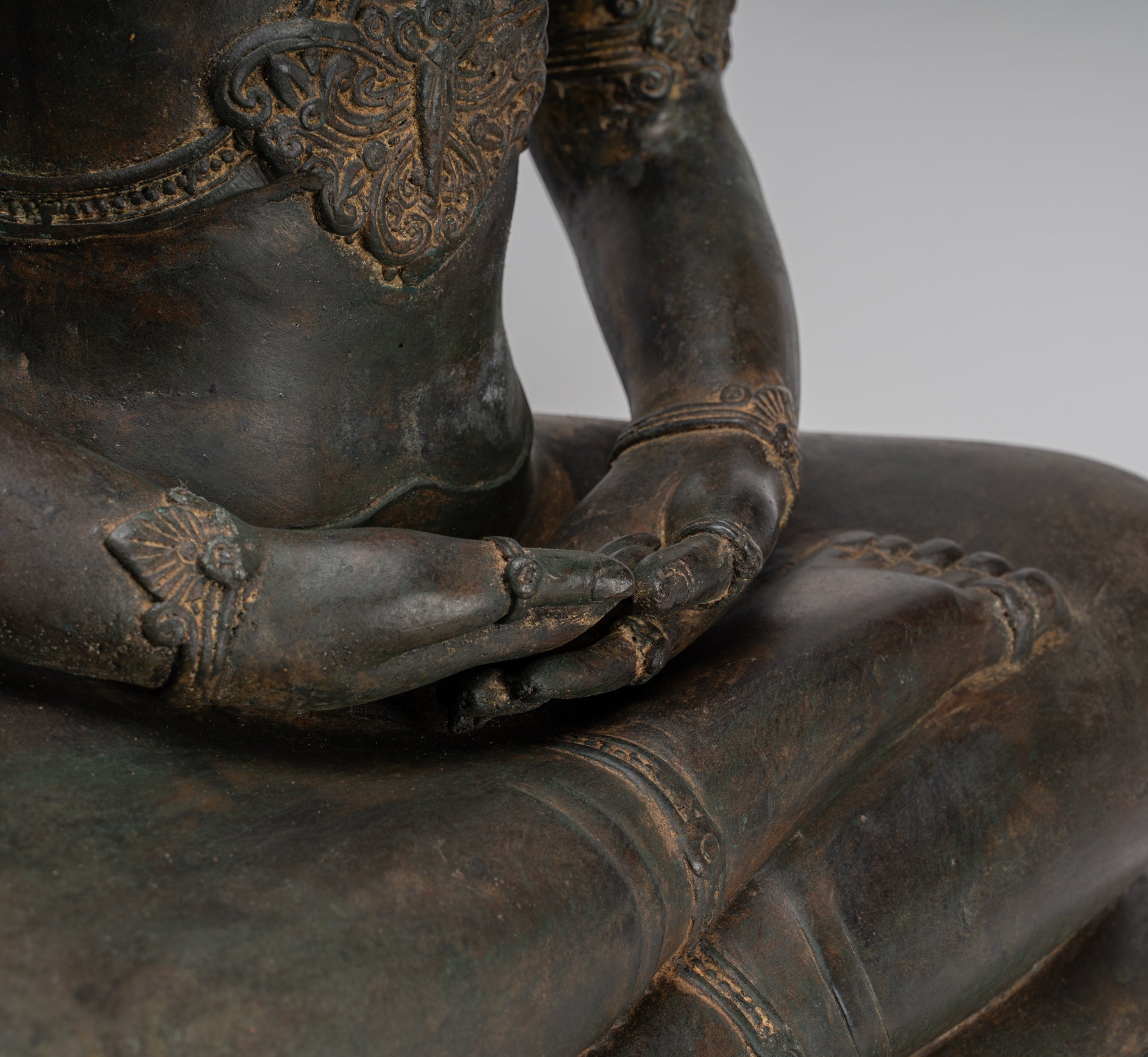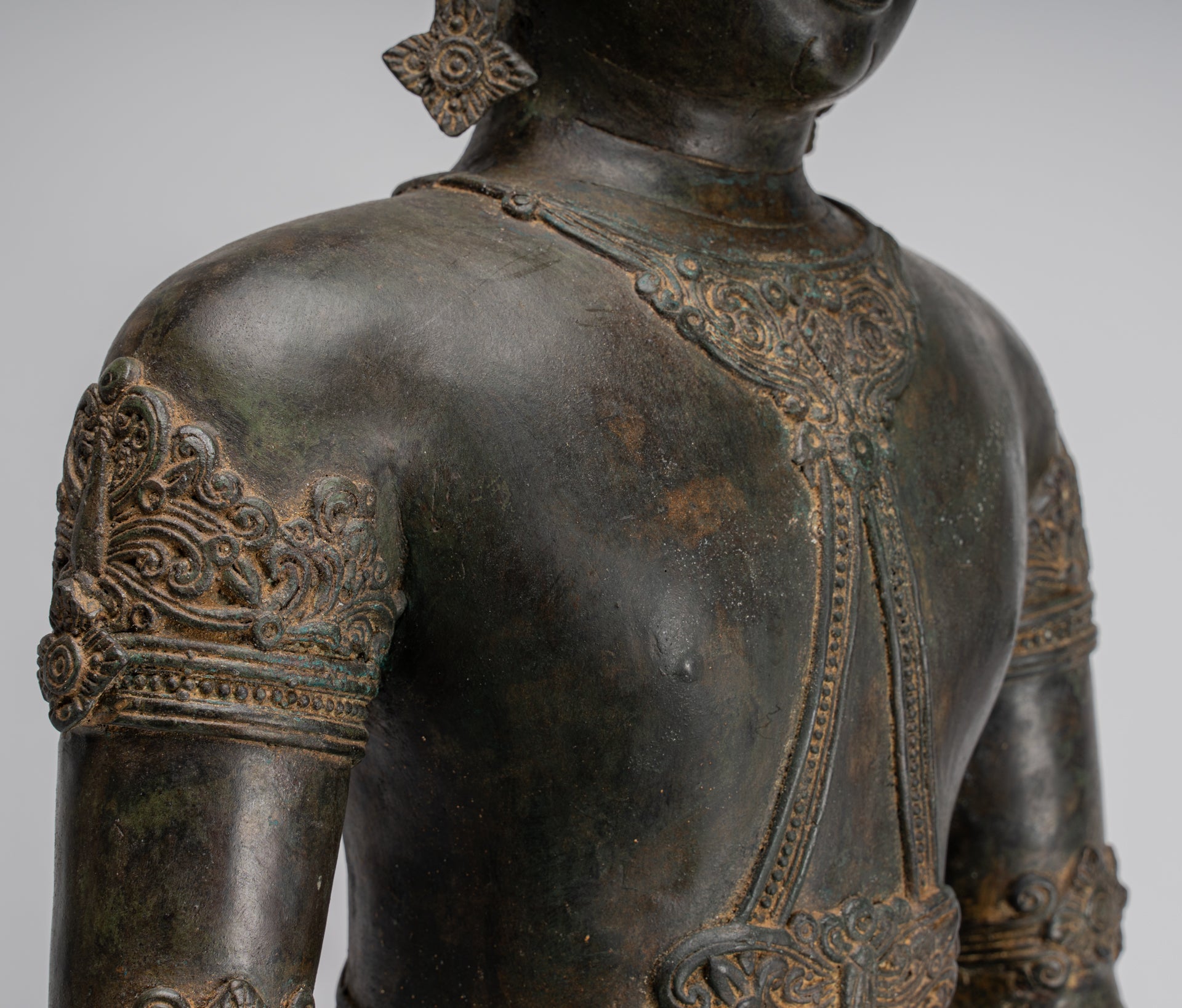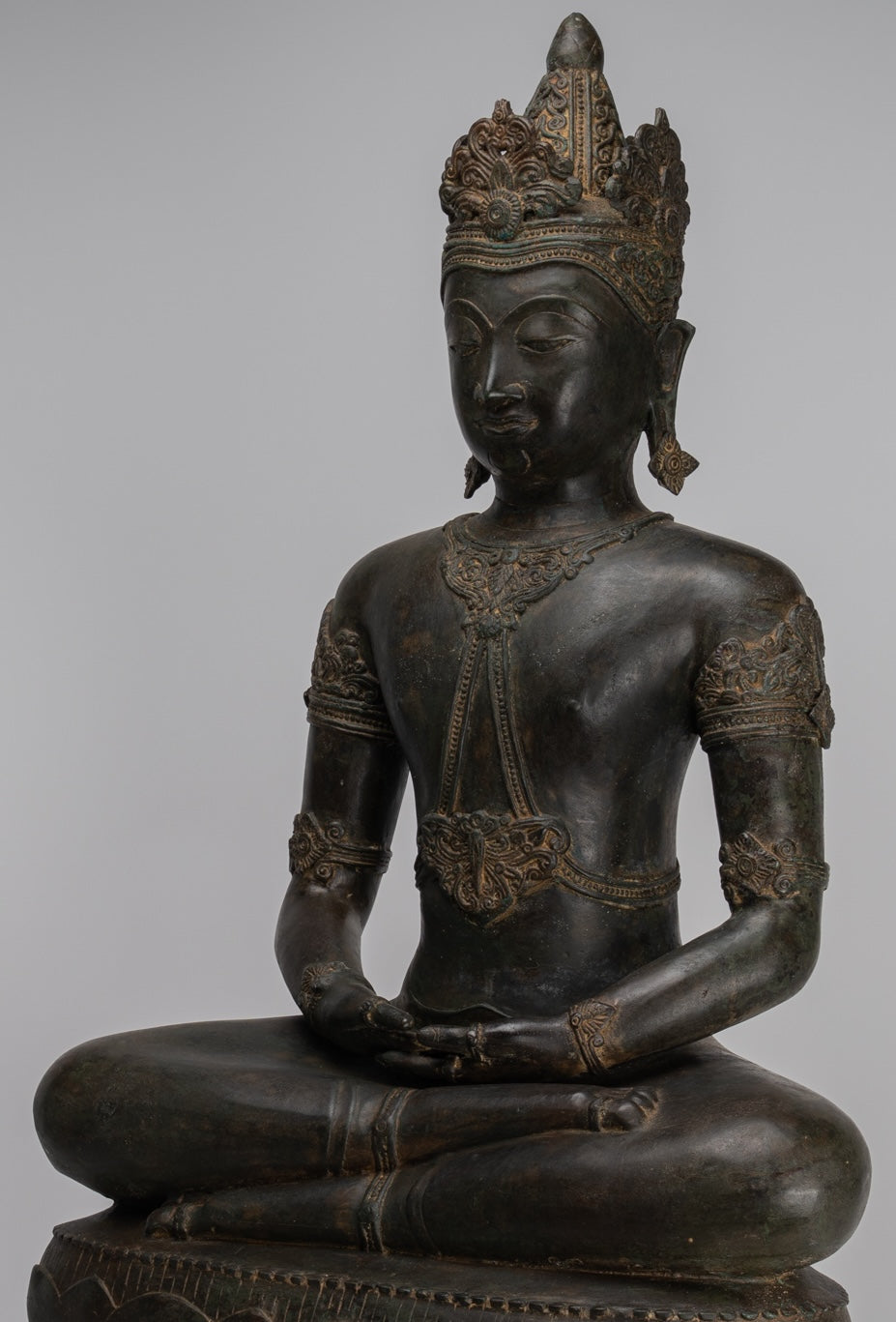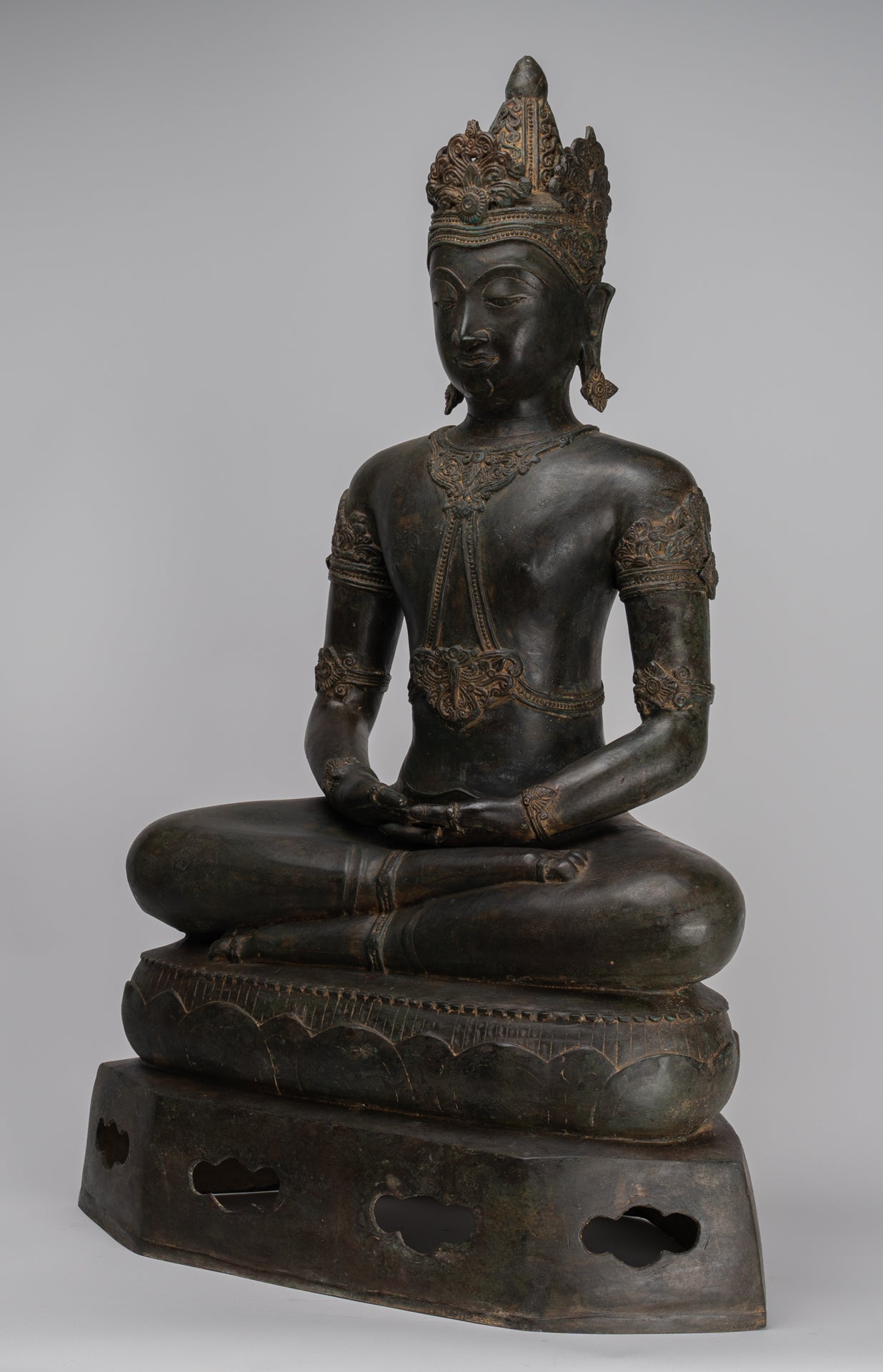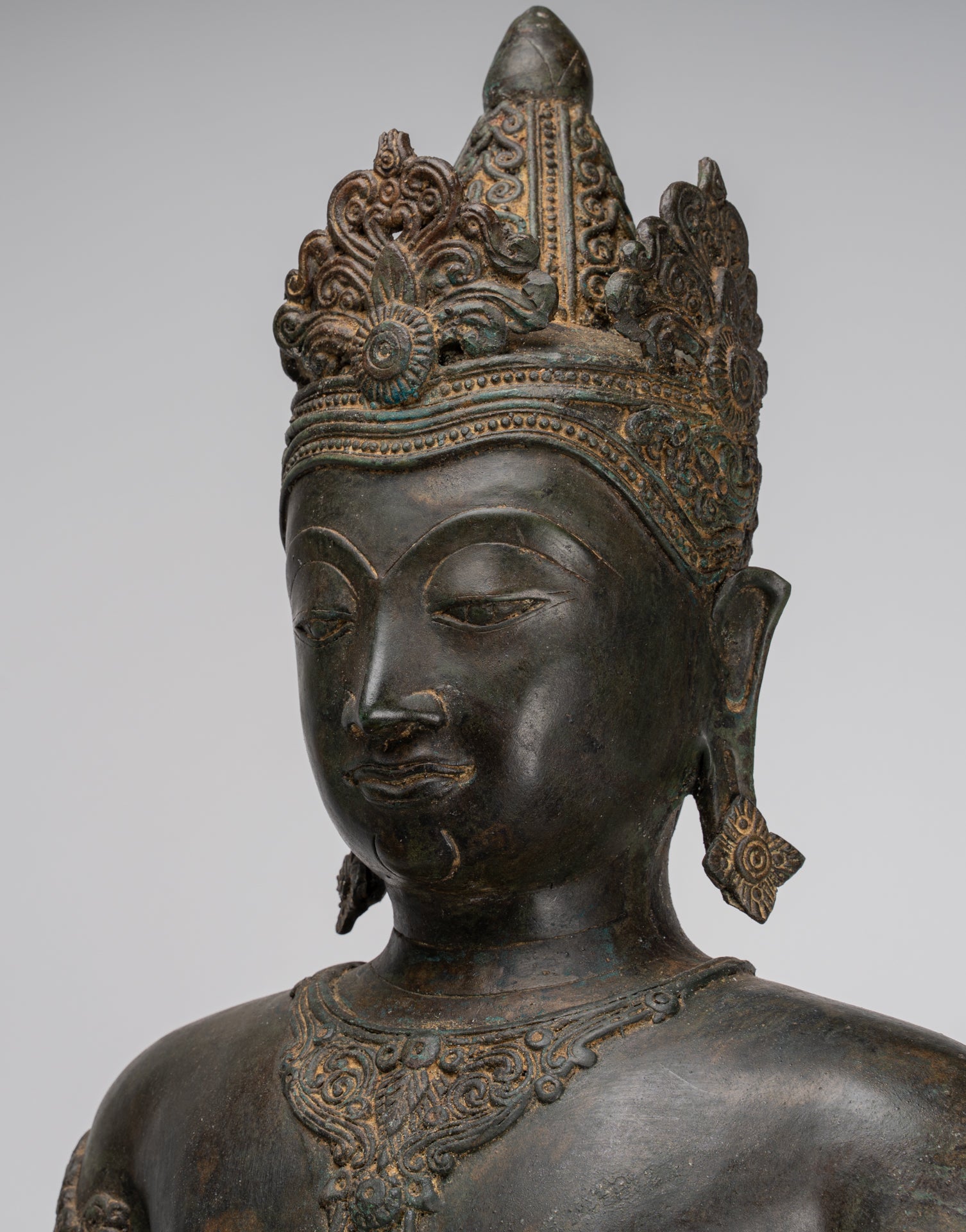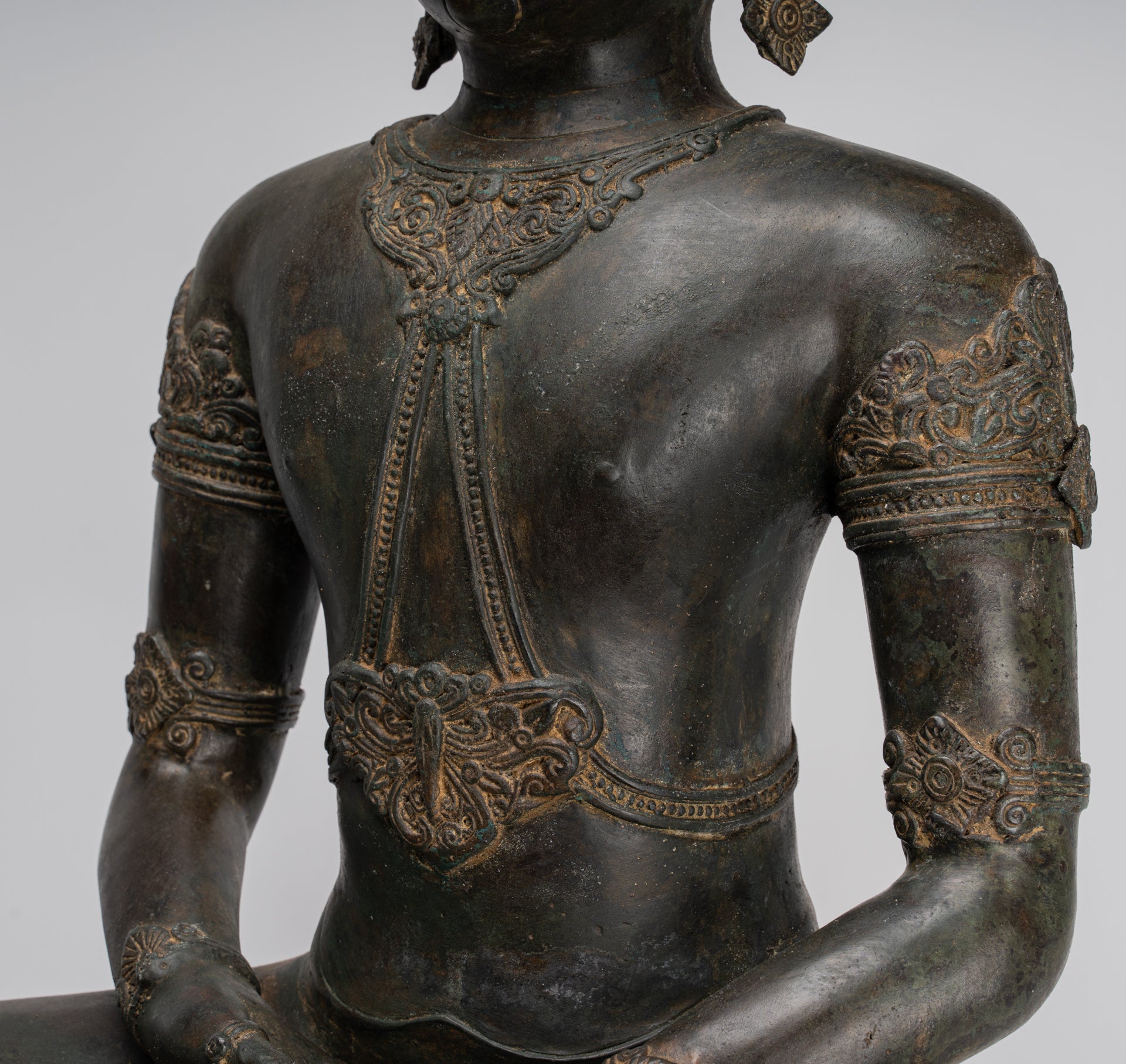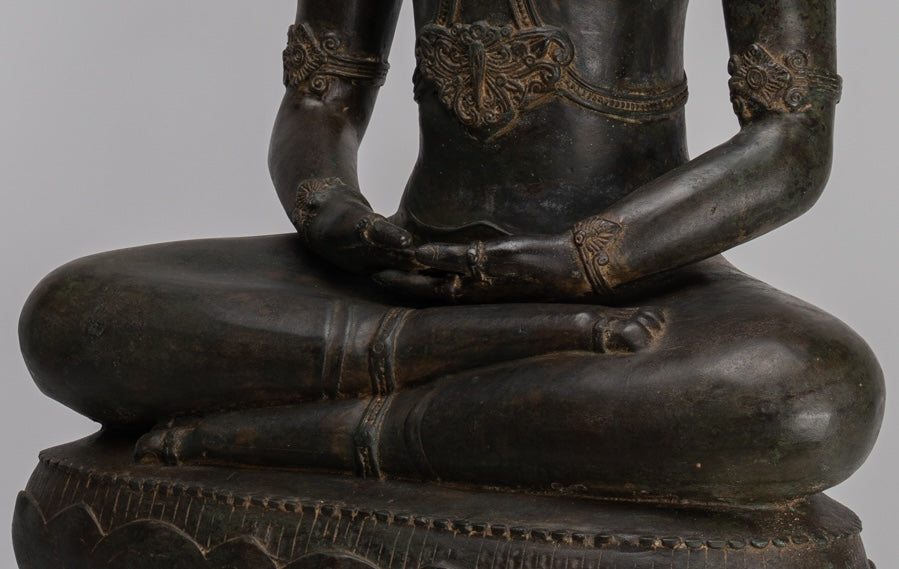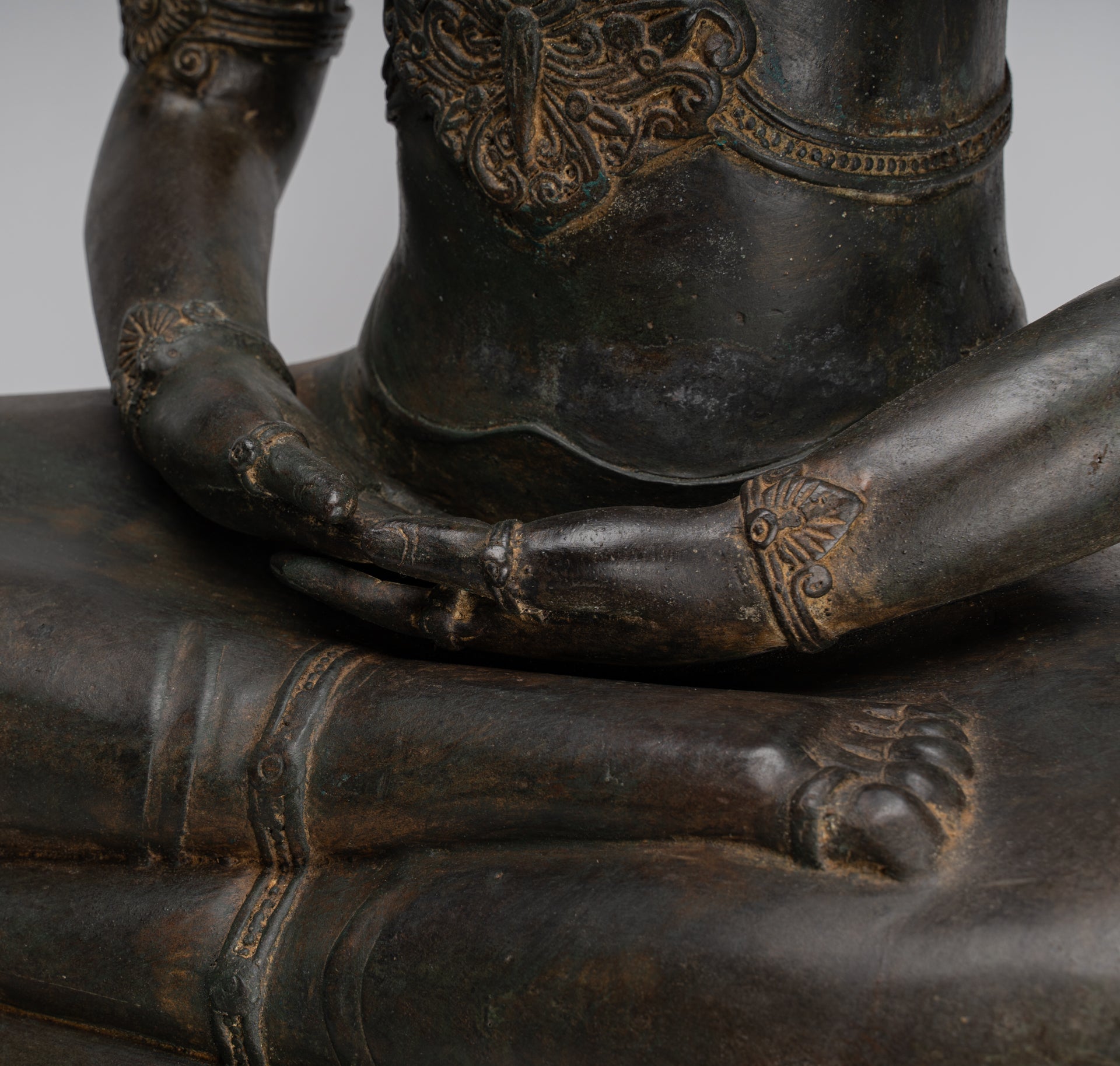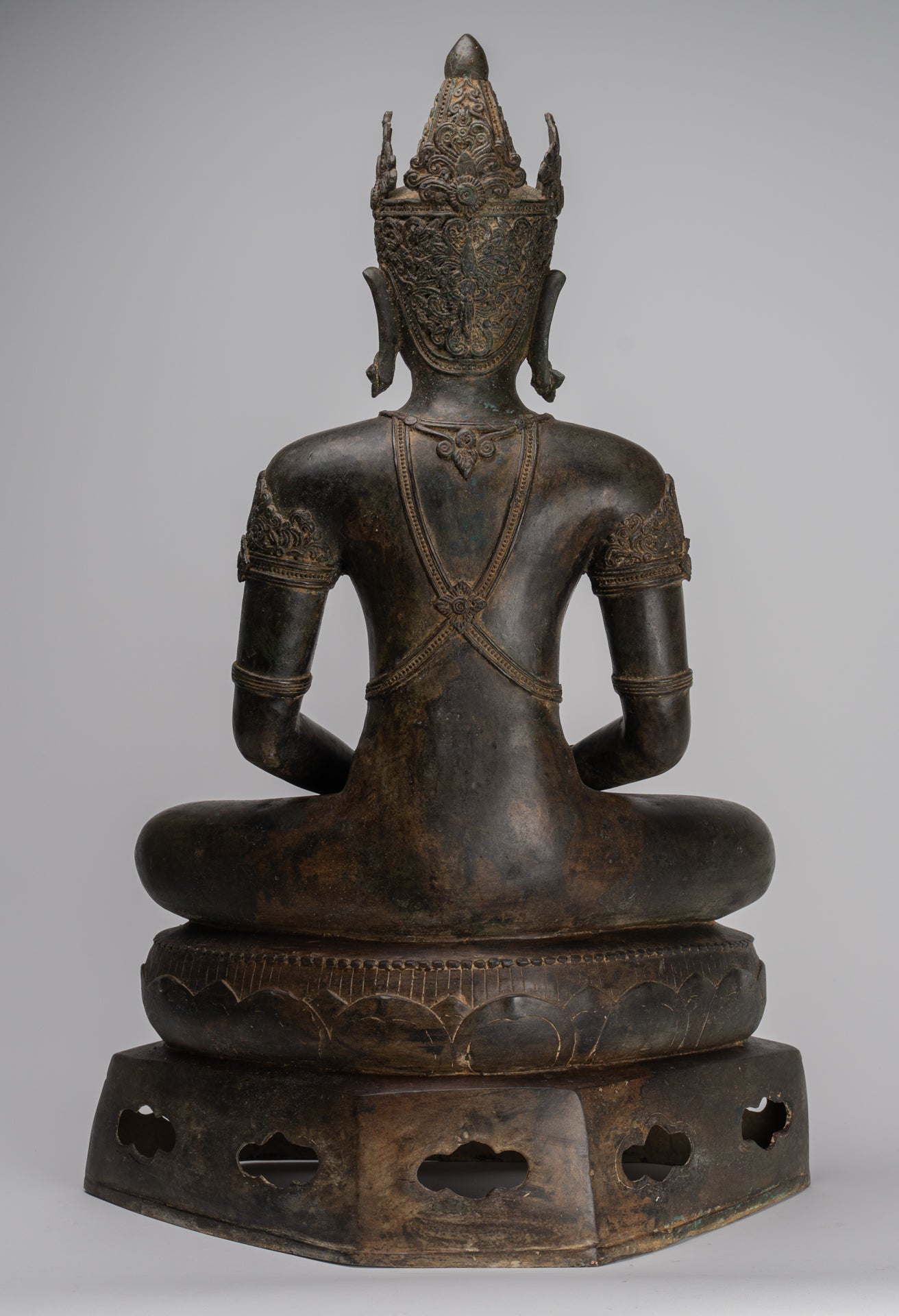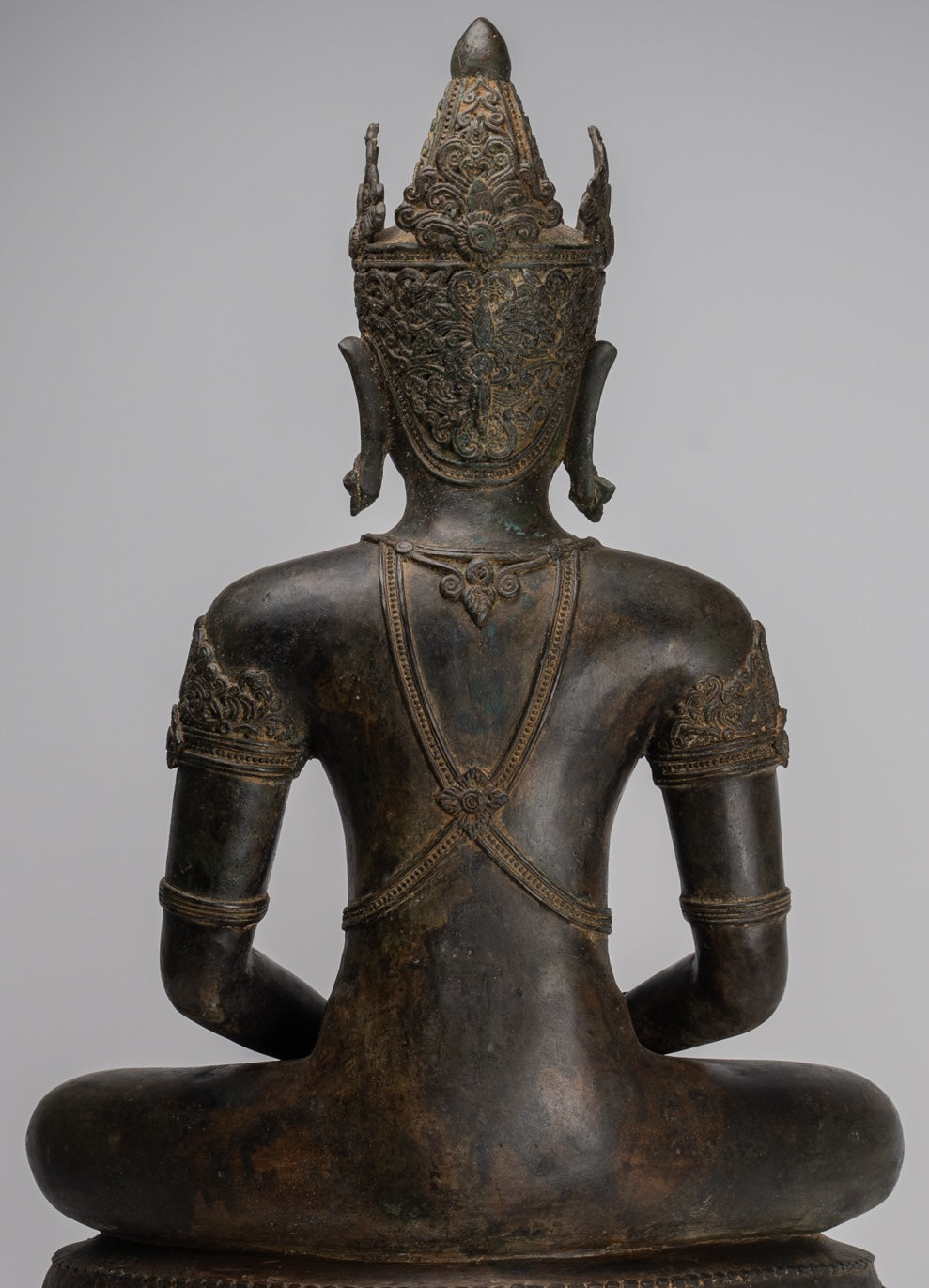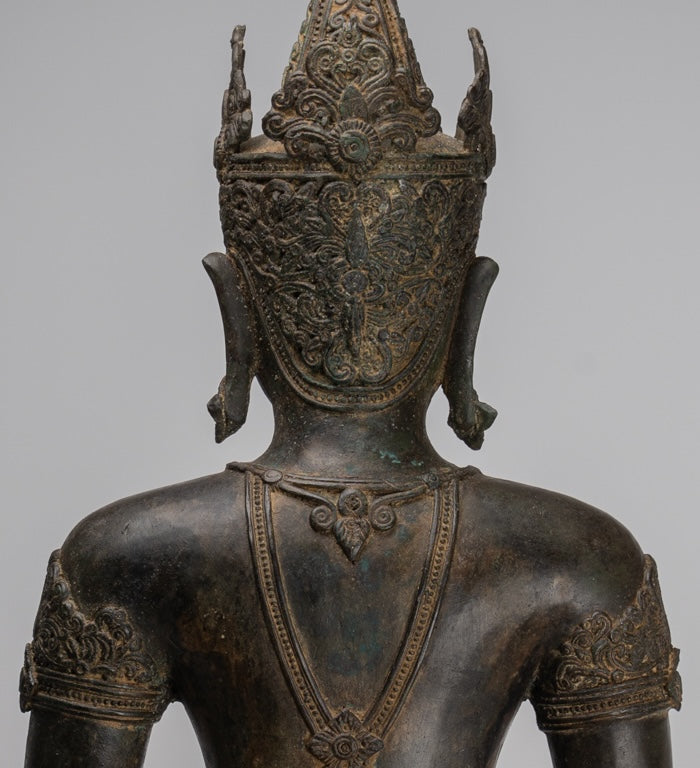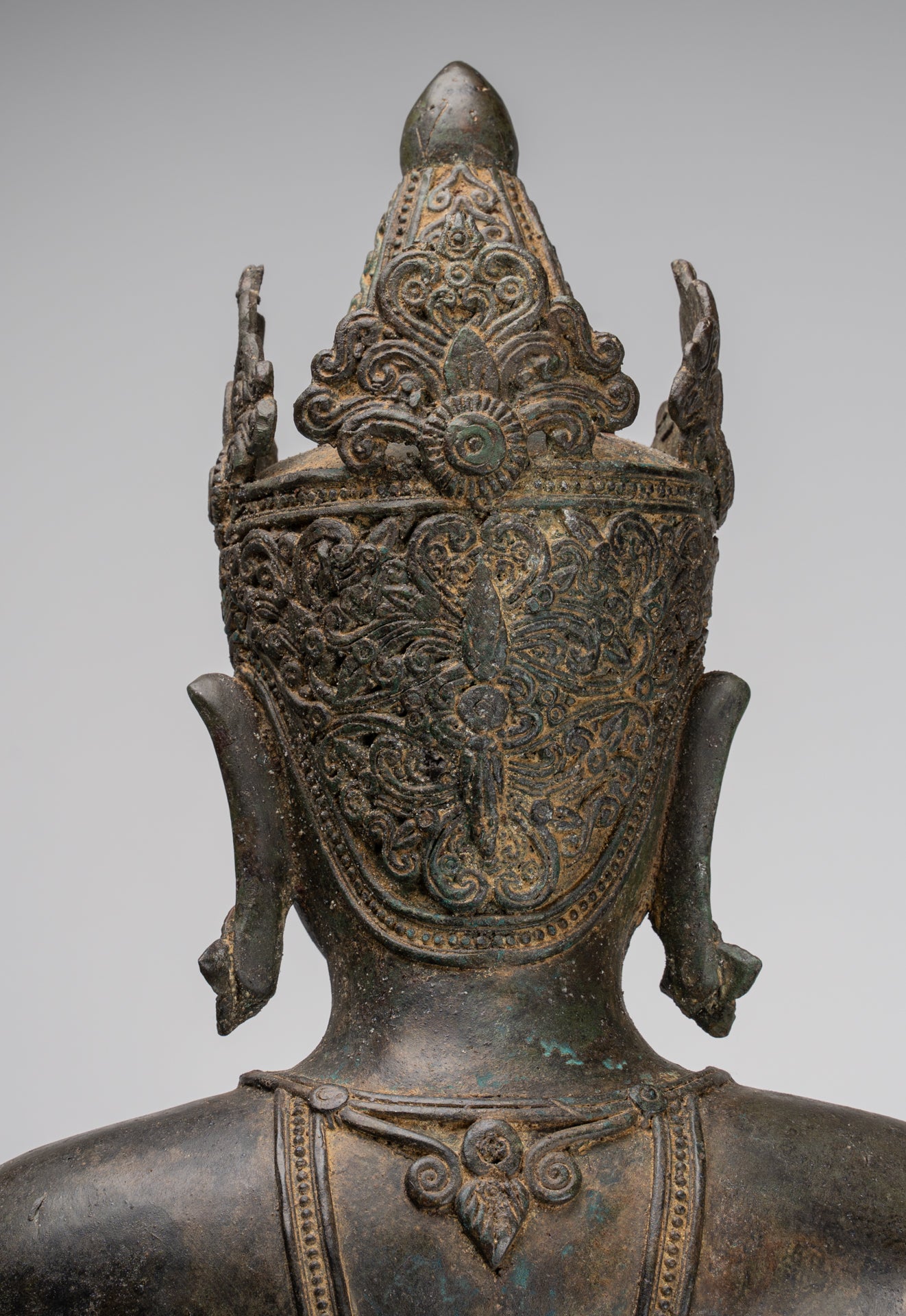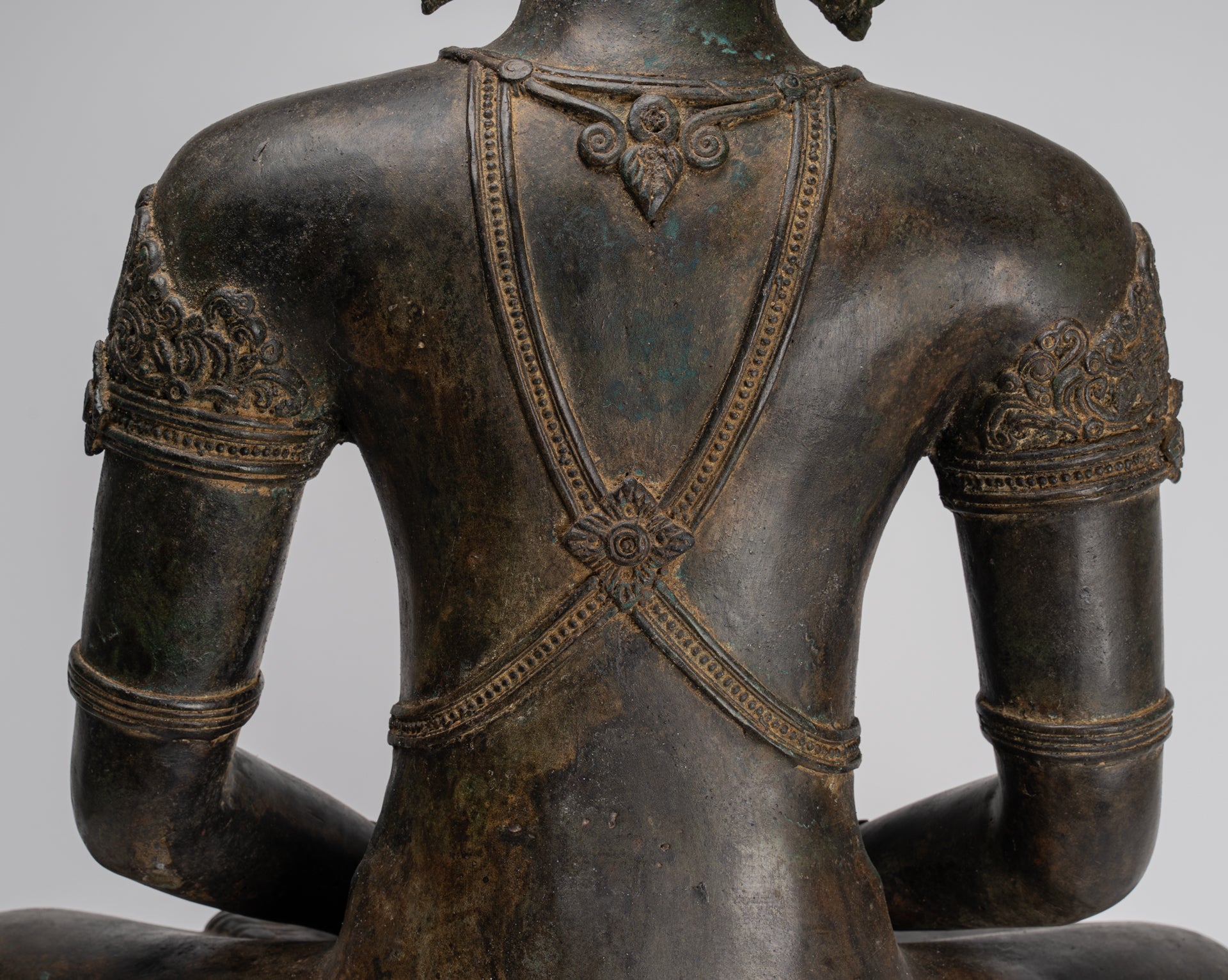-
Buddha Statue - Antique Chiang Saen Style Royal Meditation Buddha Statue - 86cm/34"
Measures (Height) 86cm/34"
An antique Chiang Saen style Royal Buddha seated in the half lotus or Ardha Padmasana postion, with hands held in the Dhyana or Meditation position.
The Meditation Buddha, also known as Dhyana Mudra or Samadhi Mudra, is an iconic representation of the Buddha in a contemplative and meditative posture. This image holds deep significance within Buddhist tradition, conveying essential teachings and embodying the virtues of inner peace, mindfulness, and spiritual reflection.
As is traditional, the Meditation Buddha is depicted here in a seated posture, with both legs crossed in the half-lotus position. The hands are placed in the Dhyana Mudra, where the right hand rests on top of the left hand, with the thumbs gently touching, forming a subtle triangle or circle. The Buddha's back is straight, and the gaze is lowered, signifying deep concentration and inner reflection.
The Meditation or Dhyana Buddha has a peaceful countenance with downcast introspective eyes and a firm brow. This hand gesture promotes the energy of meditation, deep contemplation and unity with higher energy.
Seated peacefully in his kingly attire the royal Buddha's lips are pursed together and his eyes are downcast in deep meditation. His royal garments include a crown with triangular shaped designs on each side of the crown with a beautiful lotus bud shaped ushnisha emerging from the top of the head. This symbolizes his high level of spiritual development.
His earlobes are stretched long from a youth spent as a prince wearing heavy gold earrings. The Buddha wears jewellery with designs on his chest, shoulders, arms, wrists and ankles the most beautiful of which is the elaborate designs on his chest plate.
He is enthroned upon a lotus leaf base. The lotus flower represents purity, compassion and the giving of great joy to all. The lotus also confirms the attaining of enlightenment and the ultimate fulfilment that follows. This symbol is heavily used in Eastern religions, which is why it can appear as both a held item or a seat. Some say that as the lotus flower grows in dirty water but becomes something beautiful, it demonstrates how we must forget our attachments to the material world around us and focus on our inner spirituality in order to seek happiness.
The casting is beautiful as you can see in the fine details of the fingers and toes. The malachite and azurite patina delightful and unusual. Each detail is rendered perfectly. The distinctive patina of the piece is particularly attrractive.
This traditional in appearance piece is sure to bring serenity to your home, office or sacred space.
One of the most recognizable of the Asian deities this representation of the spiritual teacher Buddha is sure to enlighten your home with endlessly timeless style.
SATISFACTION GUARANTEE - We have been offering SE Asian Art for many years and are proud of the reputation we have developed for fair and honest listings. However, if for any reason, whatsoever, you are unhappy with your purchase please just let us know and we will provide a full refund. We want you to be 100% happy with your purchase.
-
The majority of orders will be shipped with DHL. This is a secure, express and fully tracked service.
Items less than 2Kg we typically ship using Royal Mail.
Once we receive your order we try to ship all orders the same or next working day.
Large and/or fragile pieces requiring palletising, specialist crating and/or extra packaging may take a little longer. Palletised shipments will be delivered curbside.
All orders over 35 GBP will be shipped free of charge.

-
We genuinely hope that all purchases delight.
However, if they do not, regardless of reason, we will refund all orders upon receipt of the unwanted item. Just notify us within 14 days of receiving your order that you wish to make a return and send the piece back to us with 30 days of delivery.
If you’re looking to buy a Ganesha statue in the UK, you’ll quickly discover a world of exquisite craftsmanship, deep symbolism, and cultural heritage. The Lord Ganesha statue—beloved as the remover of obstacles and the god of wisdom—holds a special place in homes and temples around the world.
But finding the perfect piece, whether carved from wood, shaped in stone, or cast in bronze, requires an understanding of both artistic technique and spiritual significance.


